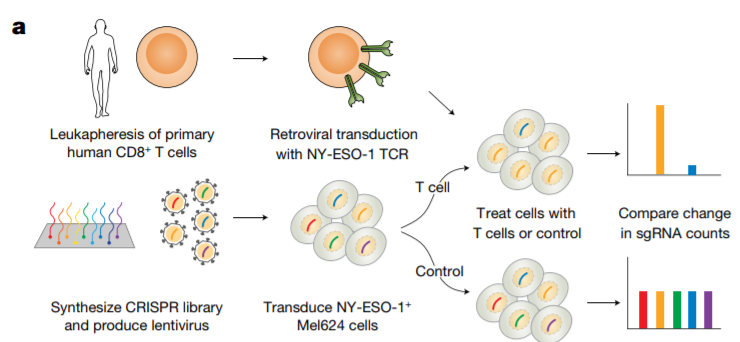


Crispr-cas9 genomic screening technology can be used to screen the key genes that affect the proliferation, drug resistance and metastasis of cancer cells. Some gene mutations will lead to the resistance of tumor cells to immunotherapy. It is very important for immunotherapy to find the key genes of tumor cells escaping immunotherapy.

The researchers screened 19050 high-throughput CRISPR genomes encoding proteins in more than 120000 sgRNA targeted cells to infect the library lentivirus. Then the T cell killing experiment was carried out. The surviving tumor cells were sequenced in depth, and the key genes were found out by analyzing the sequenced data.

Through the statistical analysis of three different methods of sequencing results, we found that the mutations of HLA-A, hla-f, B2M, TAP1 and TAP2 appeared in the selected tumor cells. In-depth study on the function of aplnr gene, it was found that overexpression of aplnr in tumor cells would lead to the increase of Jak1 content, and overexpression of aplnr protein significantly improved the resistance of tumor cells to T-cell killing, which proved that aplnr plays a very important role in T-cell tumor immunotherapy.
Case 1: the role of CRISPR genomic screening signaling pathway research
Case 2: the role of CRISPR genome screening in the discovery of new tumor immune regulatory factors
Case 3: discovery of key target genes of tumor immunotherapy through CRISPR high-throughput genome screening